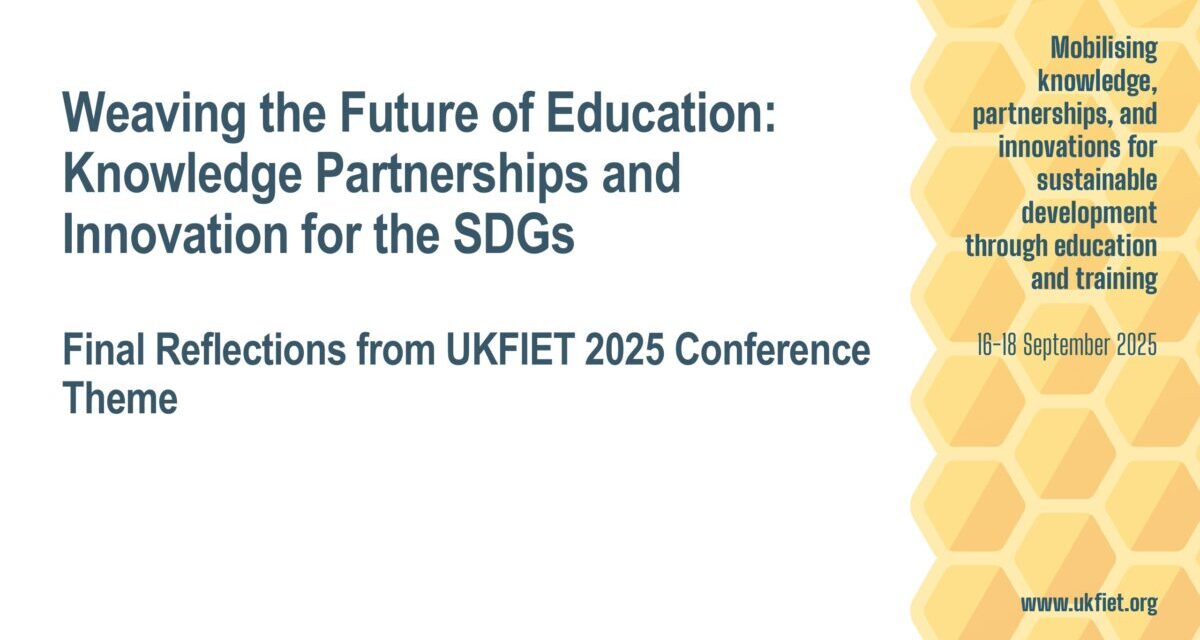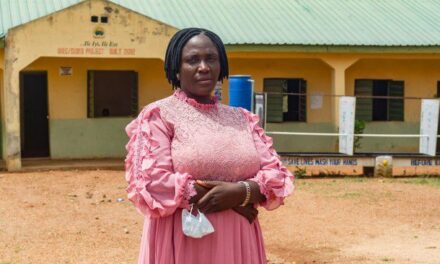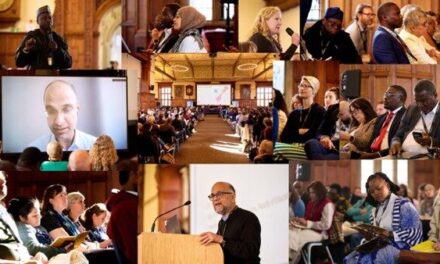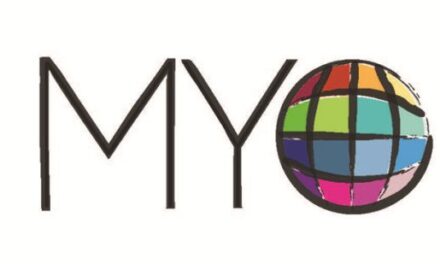Read the summary blog from the convenors of this theme:
Webinar
A webinar series followed the UKFIET September 2025 conference. These one-hour sessions on each of the seven conference sub-themes aim to give a flavour of discussions and amplify sparks ignited at the conference.
Convenors:
- Rona Bronwin, Foreign, Commonwealth & Development Office
- Najme Kishani, PAL Network
Panellists:
- Manos Antoninis, GEM Report, UNESCO
- Abida UC and Neha Ghatak, Centre for Budget and Policy Studies, India
- Rajib Timalsina, Tribhuvan University / ASER Nepal
- Maxine Schaefer, Click Learning, South Africa
- Matthew Jukes, Luminos Fund
Rona Bronwin introduces the webinar with the aim of providing a flavour of what was shared at the September 2025 UKFIET conference. Najme Kishani chairs the chat and introduces the speakers. She reminds us that if we truly want to accelerate progress towards the SDGs we have to truly move knowledge and innovation into action.
Manos Antoninis outlines the mandate of the Global Education Monitoring Report team to monitor global progress relating to SDG 4. The team felt they needed to define what is behind progress over time as statistics look quite static otherwise. Manos describes the new approach to the next three annual reports in the countdown to 2030, which will focus on: Access and equity, quality and learning, and relevance.
For a case study of mobilising knowledge in India, Abida UC and Neha Ghatak share a story of how they design comprehensive responsive early childhood models that reach the most marginalised children. This is a powerful example of using evidence and grounded understanding to reshape public systems.
For an example of mobilising partnerships, Rajib Timalsina outlines a community-led approach that ASER has been taking to reduce learning poverty and strengthen foundational literacy and numeracy in rural Nepal. This case study shows partnership in its truest form, where communities are not just beneficiaries but actually co-lead the changes.
In relation to mobilising innovation, Maxine Schaefer shares findings on personalised adaptive learning to enhance literacy in South African primary schools. When technology is used thoughtfully, it can meet learners where they are and open up new opportunities for inclusion and growth.
Rona Bronwin reflects on these three inspiring snapshots of how innovations, partnerships and knowledge are proof of how it is possible to accelerate the much-needed progress to ensuring that all children can access inclusive and equitable quality education.
She then introduces the shift to monitoring of different interventions and how to capture signs of progress. At the conference, there was an important symposium on the growing number of learning assessments – including work with national governments using their own tools, as well as household assessments. She highlights the blog on ICAN, an important step to improving ways how to track learning outcomes globally:
Unlocking foundational learning: A deep dive into the ICAN-ICAR project
Matthew Jukes discusses how learning outcomes can be improved. He shares a flavour from a vibrant conference symposium focusing on the innovative observation tool ‘Engage’. This toolkit demonstrates the relationship between engagement and learning outcomes in all age groups, and highlights the importance of monitoring learning outcomes to assess progress towards the SDGs.
Rona Bronwin reminds us that the SDG conference sub-theme finished with some creative workshops on what next. For example, there was an energetic session led by Andy Brock, who facilitated a conversation around what the reduction of in traditional donors mean in the reincarnation of global education:
The demise of international education: Three scenarios for reincarnation
These highlighted the huge level of uncertainty ahead but maybe therefore also the potential to step boldly into this with the innovation, partnerships and knowledge we have heard from during this webinar.
Najme Kishani summarises that as we look ahead, it is clear that the path to achieving the education SDG is not linear, but layered with complexities, uncertainties and competing priorities. What is discussed in the webinar and what was reflected upon during the conference remind us that real progress often happens in spaces of uncertainty, where ideas meet practice and partnerships cross boundaries. So the question now is not just how far we can get by 2030, but also how we can define and think about what comes after – what kinds of systems do we want, who defines success, and how can we ensure that the people and communities most affected by inequalities remain at the centre of transformation.




